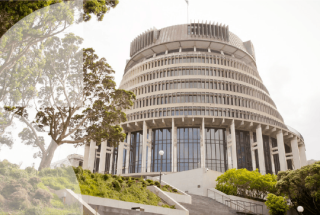Should Councillors see Council reports?

Should Councillors see Council reports?
Tuesday 24 July, 2018
The answer will almost always be “yes”, but Auckland Mayor Phil Goff has had reservations. The report in question cost Auckland Council almost $1 million and relates to the proposed national stadium, which could cost $1.5 billion.
Councillors Cathy Casey and Efeseo Collins have complained to the Ombudsman about lack of access to a report on the proposed national stadium. Initially, the only full copy of the report was held in the Mayor’s office. Councillors were given redacted copies and the option of reading the full copy – but only in the mayor’s office. Mayor Goff cited concerns about whether one Councillor in particular, whom he has not named, might leak the commercially sensitive information that the report contains. The mayor has now given the unredacted copies to Councillors Casey and Collins, but subject to the condition that the reports are not copied, are kept in a secure location, and are returned to the mayor’s office once the councillors have read them.
Radio New Zealand had gone to the Ombusdman last year seeking a copy of the report. The Ombudsman determined that Auckland Council had to release the report but could redact parts identifying the owners of land potentially suitable for the stadium and parts identifying potential stadium stakeholders. The same details were redacted in the copy initially given to Councillors.
Opposition MP Denise Lee introduced a member’s bill in February this year which would amend the Local Government Official Information and Meetings Act to deal with “member requests”. The bill would allow councillors to make LGOIMA requests for Council documents which could only be refused for the conclusive reasons listed in s 6 or to protect the privacy of natural persons. Councils would only have six working days to respond to the request. Councillors would not be permitted to publicly disclose the information, subject to several sensible exceptions.
Public law academic Dean Knight has criticised the bill for focusing on the wrong piece of legislation. Dr Knight has pointed out that councillors’ rights and duties arise under the Local Government Act 2002, not LGOIMA. We agree that the primary source of councillors’ right to council information arises from their powers and duties under the LGA. Dr Knight hopes that the Ombudsman will consider the complaint through the lens of maladministration in local government, which the Ombudsman is empowered to address.
So how should Councils manage reports containing sensitive information? Councillors must be given the opportunity to take all relevant considerations into account when making decisions; this is a fundamental principle of public law. But a councillor with a political agenda could be tempted to leak sensitive information to the detriment of the council or a third party. It can be difficult to strike the right balance. We have assisted local government clients with these issues in the past.
Ms Lee’s bill is unlikely to become law, but the Ombudsman can be expected to release a ruling in the near future. It seems likely that it will make somewhat uncomfortable reading for Mr Goff.
For assistance with questions relating to the provision of information to Elected Members please contact Megan Crocket.




